
Honoring Our Past Faculty
Brad Bartel (1950-2023)
Anthropology Faculty Member (1975-1982)
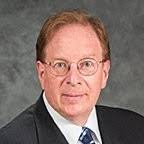 Brad was a native of New York and received his B.A. from Brooklyn College in 1970
and his Ph.D. from the University of Missouri, Columbia, in 1974. He was just 24 years
old. Both degrees were in Anthropology, specializing in archaeology.
Brad was a native of New York and received his B.A. from Brooklyn College in 1970
and his Ph.D. from the University of Missouri, Columbia, in 1974. He was just 24 years
old. Both degrees were in Anthropology, specializing in archaeology.
In 1975, Brad became an Assistant Professor in the Department of Anthropology at SDSU and, by 1982, had earned the rank of full Professor. His focus areas were Roman archaeology, colonialism, mortuary practice, and early human symbolism. He conducted research in Europe and the United States. He excavated Sirmium, a Roman Empire capital city in Serbia, the Celtic site of Dun Ailinne, Ireland, and surveyed early Bronze Age sites in Turkey. Funded by the National Science Foundation, he co-directed excavations at Kraku'lu Yordan, a Roman metallurgical site in Serbia.
He directed excavations and field schools at the San Diego Presidio in California (the first European (Spanish) settlement on the West Coast) and at the 18th-century Moravian community of Old Salem, near Winston-Salem, North Carolina. He and his wife Laura, also an anthropologist, co-directed and led a field school at the neighboring winter homes of Thomas Edison and Henry Ford in Fort Myers, Florida. Brad's research appears in numerous scholarly publications, including World Archaeology, the Journal of Archaeological Science, and the Journal of Anthropological Archaeology.
He never planned to become an administrator, but in 1983 he was strongly recruited for the position of Associate Dean of SDSU’s Graduate Division and Research, which he accepted and became responsible for all graduate programs and degrees.
In 1991, he left SDSU to become the Dean of the University of North Carolina-Greensboro (UNCG) Graduate School and also served as the Associate Provost for Research. He was also commissioner of the Greensboro Historical Commission for six years.
In 2000, Brad became the provost and executive vice president at Florida Gulf Coast University (FGCU) in Fort Myers. He was responsible for developing the academic structure of this newer university and was given the responsibility for creating several other campus and community projects.
In 2004, Brad became the president of Fort Lewis College (FLC) in Durango, Colorado. FLC is the designated public liberal arts college of Colorado and a leader in Native American collegiate education. Brad returned to the South in 2010 to serve as the provost and executive vice president of the Division of Academic Affairs at Middle Tennessee State University (MTSU). He was most proud of his work creating new doctoral programs, overseeing the notable Quest for Student Success program, and developing new opportunities and programs for faculty and students.
In 2016, Brad retired as the provost to return full-time to his first love - teaching and mentoring students. As a member of MTSU's Department of Sociology and Anthropology, he taught world prehistory and European cultures and archaeology courses.
Brad is survived by Laura, his wife of 43 years; a son, Jordan (Ahmed) and daughter, Kimberly; brother Gabriel (Sheila) Bartel, and niece Jacqueline Bartel Driscoll (Brian); sister-in-law Linda Gilgen; and other nieces and nephews.
Victor Goldkind (1926-2011)
Anthropology Faculty Member (1961-1992)
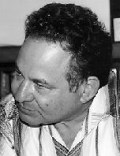 Dr. Victor Goldkind, Emeritus Professor, Department of Anthropology, San Diego State
University, died peacefully at home on Tuesday, September 20th, 2011. He was born
in Brooklyn, NY of Polish Jewish immigrant parents on March 21, 1926. Victor served
as an enlisted man and translator in the US Army in World War II in Europe and taught
Anthropology at San Diego State University for over thirty-five years. He wrote strong
letters that were published on op-ed pages of the SD Union-Tribune and the LA Times.
He was a man of stubborn principle who in writing and teaching dedicated himself to
the advancement of rationalism, human rights and democratic values. As a professor
he mentored junior faculty with his wide-ranging knowledge and insight. Professors
with his wit, wisdom and compassion for his fellow man are not common, and his departure
from this world will leave a certain void. He is survived by his wife Karen, his younger
sister Rosie Kress, his two sons, Igor and Stuart Goldkind, his stepson, Ian Mason
and five grandchildren, Gretchen Oldelm, Cassidy, Francisco and Isabel Hudson, and
Olivia Goldkind Brooks.
Dr. Victor Goldkind, Emeritus Professor, Department of Anthropology, San Diego State
University, died peacefully at home on Tuesday, September 20th, 2011. He was born
in Brooklyn, NY of Polish Jewish immigrant parents on March 21, 1926. Victor served
as an enlisted man and translator in the US Army in World War II in Europe and taught
Anthropology at San Diego State University for over thirty-five years. He wrote strong
letters that were published on op-ed pages of the SD Union-Tribune and the LA Times.
He was a man of stubborn principle who in writing and teaching dedicated himself to
the advancement of rationalism, human rights and democratic values. As a professor
he mentored junior faculty with his wide-ranging knowledge and insight. Professors
with his wit, wisdom and compassion for his fellow man are not common, and his departure
from this world will leave a certain void. He is survived by his wife Karen, his younger
sister Rosie Kress, his two sons, Igor and Stuart Goldkind, his stepson, Ian Mason
and five grandchildren, Gretchen Oldelm, Cassidy, Francisco and Isabel Hudson, and
Olivia Goldkind Brooks.
Edward O. Henry (1941-2022)
Anthropology Faculty Member (1974-2004)
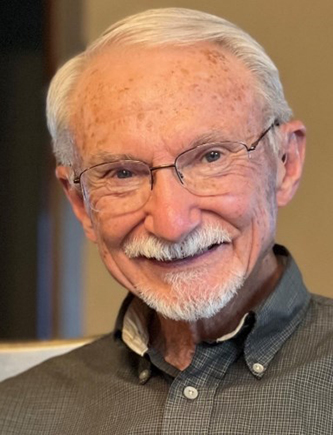 Ed Henry died at home on December 5, 2022 at the age of 81. Born in North Platte,
NE to Oscar Henry and Joyce Reitan Henry, he grew up with sisters Merm and Geege,
and was an avid model airplane builder.
Ed Henry died at home on December 5, 2022 at the age of 81. Born in North Platte,
NE to Oscar Henry and Joyce Reitan Henry, he grew up with sisters Merm and Geege,
and was an avid model airplane builder.
Ed earned an engineering degree from General Motors Institute of Technology, then changed course to pursue a doctorate in cultural anthropology at Michigan State University. He conducted research on the folk music of villages in northern India, traveling there eight times over four decades to record musicians in their context.
He taught at SDSU from 1974–2007, publishing a book, "Chant the Names of God", a long-playing record of the same title, and a CD of women's songs.
Ed attributed his lifelong love of music to his mother forcing him to sing in the Methodist church children's choir. He was skilled at numerous instruments, especially guitar and hammered dulcimer, and played a wide variety of music including blues, classical, traditional Irish, and old-time American as well as his own compositions. He loved to sing in harmony.
In retirement, Ed became a passionate bird photographer and traveled with his wife Connie to many countries to capture images of interesting and beautiful birds, many of which can be viewed on Instagram at eddieoscar41.
He is survived by his wife Connie, son Evan, daughter-in-law Hallie, grandson Sullivan, daughter Marissa, son-in-law Alex, and sister Geege Boyle.
Ronald Himes (1940-2024)
Anthropology Faculty Member (1969-2002)
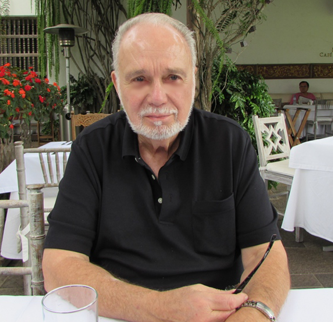 Ronald Himes came to SDSU in 1969, ABD at the University of Hawaii with an emphasis
in kinship and social organization and a specialization in Southeast Asia and the
Philippines. Self-styled as “an anthropologist who taught for a living, not primarily
a teacher,” Ron soon found his true love to be graduate and undergraduate teaching,
and he quickly morphed into one of the most effective and beloved instructors in the
fledgling department of the early 1970s.
Ronald Himes came to SDSU in 1969, ABD at the University of Hawaii with an emphasis
in kinship and social organization and a specialization in Southeast Asia and the
Philippines. Self-styled as “an anthropologist who taught for a living, not primarily
a teacher,” Ron soon found his true love to be graduate and undergraduate teaching,
and he quickly morphed into one of the most effective and beloved instructors in the
fledgling department of the early 1970s.
In the middle 1970s, Ron was drafted to take on responsibility for the difficult and, as he liked to say, “undoubtedly the most unpopular stepchild in our program,” Anthropological Linguistics. With the meticulous conscientiousness that characterized his research, writing, and teaching throughout his career and on into a productive retirement, Ron swiftly transformed the undergraduate and graduate SDSU Anthropological Linguistics track into an interesting and attractive subfield within the department, a status that it retained on up to his retirement in 2002. At the same time, he refocused his own research and writing interests to reflect the content of his various courses and seminars: “It was a turning point. My interests swung wholeheartedly into the sphere of language change, with an emphasis on the linguistic evidence for culture history in the Cordilleran languages & cultures in northern Luzon, Philippines. I had started collecting linguistic data in the Cordillera in 1963-64, continued in 1966-68, and returned specifically for that purpose in 1977, 1981, and 1989. My data ultimately included phonological and lexical data from 94 Central Cordilleran sites, 16 Southern Cordilleran sites, and 7 Northern Cordilleran sites.” The end result was a compendium of reconstructions in Proto-Central, Proto-Southern, Proto-South-Central (the parent of those two), Proto-Northern, and Proto-Cordilleran (the parent of all those) that became a major contribution to knowledge of the technology, social structure, migration patterns and general culture history of the northern Philippines.
In 1984 Ron was elected to chair the department, which he did until 1989. During this tenure as chair, Ron oversaw the addition of one new tenure track position in archaeology to the department, but more importantly, he worked to stabilized the department’s on again, off again engagement with local archaeology and resource management activities into what became formalized as the South Coast Information Center and the Collections Management Facility. This was a significant step in the growth of today’s department.
Ron was one of “The Survivors” of the infamous 1991 mass firing, and assumed chairmanship for a second time in 2000. Over his last two years at SDSU, Ron oversaw implementation of the new applied anthropology focus for the anthropology program, securing the first two hires in this, an applied cultural anthropologist, Ramona Pérez, and an applied historical archaeologist, Seth Mallios. He also was instrumental in finally realizing the Department’s serious space needs for separate Collections Management, South Coast Information Center, and Maya Research Lab Facilities, all then located off campus at the University’s City Heights satellite complex. After his retirement in 2002, Ron continued an active program of field research, writing, and publication in his own beloved areas of Philippine Cordilleran Historical Linguistics.
There is one more thing that Ron Himes’ former colleagues and students will always
remember him for: in a time when civility and good manners were rapidly disappearing,
Ron remained a true, consummate gentleman throughout his career and life. A quiet,
mild-mannered person by nature, Ron was always pleasant, polite, and genuinely caring
toward all with whom he came in contact. He was ever the model of a true teacher-scholar
from a bygone age.
Lawrence C. Watson (1936-2024)
Anthropology Faculty Member (1967-1992)
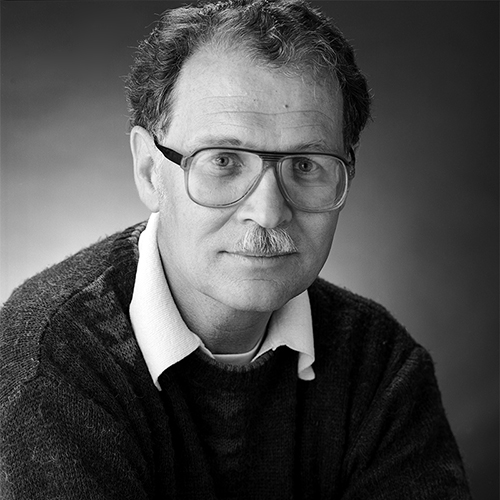 Lawrence C. Watson, fondly known as Larry, was a cultural anthropologist who specialized
in psychological anthropology. He passed away in January 2024.
Lawrence C. Watson, fondly known as Larry, was a cultural anthropologist who specialized
in psychological anthropology. He passed away in January 2024.
Larry earned his Ph.D. in Anthropology from the University of California, Los Angeles, in 1967, the same year he joined the faculty at SDSU. For 25 years, he served as a professor in SDSU’s Department of Anthropology, where he was celebrated not only for his research but also for his mentorship and commitment to interdisciplinary learning. He retired from SDSU in 1992.
His scholarly interests were wide-ranging, focusing on psychological anthropology, the relationship between the individual and culture, ethnology, and the cultures of South America. Larry's work was characterized by a profound respect for the people whose lives and narratives he studied.
In 1985, he co-authored the book Interpreting Life Histories: An Anthropological Inquiry with his wife and intellectual partner, Maria Barbara Watson-Franke, a professor in Women’s Studies at SDSU. Published by Rutgers University Press, the book reflects their shared passion for integrating narrative and ethnographic analysis.
Larry will be remembered not only as a dedicated scholar but also as a warm and thoughtful
individual whose work helped bridge the gap between lived experience and cultural
understanding.
Daniel D. Whitney (1937-2024)
Anthropology Faculty Member (1966-2000)
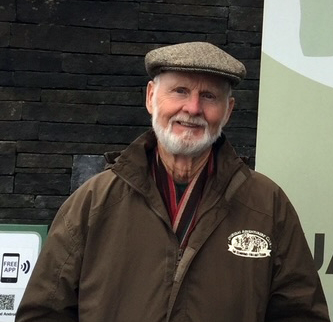 Daniel D. Whitney, born in 1937, served as a professor in the San Diego State Anthropology department
for 34 years. Dan, a cultural anthropologist, was hired at San Diego State in 1966,
two years before completing his Ph.D. at Michigan State University. He passed away
on March 3rd, 2024. Dr. Whitney specialized in Japanese culture, law and society,
and recreation and public land use. He taught a variety of courses on Asia, co-authored
the book, Cultural Contexts: Making Anthropology Personal in 1980 (Allyn and Bacon)
with Patrick J. Dubbs, and served as the California Faculty Association Grievance
Officer. Soon after being hired at San Diego State, Dan was appointed Associate Dean
of the new (in 1969) College of Arts and Letters. After stepping down from this administrative
position, Professor Whitney simultaneously returned to teaching and enrolled in law
school, earning his J.D. in 1976 from Western State University and passing the California
State Bar. Dan then split his time between practicing law and teaching anthropology
before taking on a variety of administrative positions, including Director of Programs
for the American Anthropological Association, Fulbright Lecturer in Japan, and Director
of the SDSU Center for Asian Studies.
Daniel D. Whitney, born in 1937, served as a professor in the San Diego State Anthropology department
for 34 years. Dan, a cultural anthropologist, was hired at San Diego State in 1966,
two years before completing his Ph.D. at Michigan State University. He passed away
on March 3rd, 2024. Dr. Whitney specialized in Japanese culture, law and society,
and recreation and public land use. He taught a variety of courses on Asia, co-authored
the book, Cultural Contexts: Making Anthropology Personal in 1980 (Allyn and Bacon)
with Patrick J. Dubbs, and served as the California Faculty Association Grievance
Officer. Soon after being hired at San Diego State, Dan was appointed Associate Dean
of the new (in 1969) College of Arts and Letters. After stepping down from this administrative
position, Professor Whitney simultaneously returned to teaching and enrolled in law
school, earning his J.D. in 1976 from Western State University and passing the California
State Bar. Dan then split his time between practicing law and teaching anthropology
before taking on a variety of administrative positions, including Director of Programs
for the American Anthropological Association, Fulbright Lecturer in Japan, and Director
of the SDSU Center for Asian Studies.
Dan Whitney’s unique interests in anthropology, administration, law, and institutional justice were put to the test in the spring of 1992 when SDSU President Thomas B. Day responded to a state budget crisis by firing 111 tenured professors (including all of Anthropology), at the time, the largest termination of faculty in higher-education history. Dan, who chaired the Anthropology department at the time, sprung into action; he organized and participated in protests, filed a class-action lawsuit against the university for wrongful termination, led votes of no-confidence against President Day, and relentlessly appeared in the media as a counterpoint to the administration’s draconian budgetary cuts while also assuring that students completed their courses and graduated or had alternative degree plans. Through the dogged pursuit of justice by Dr. Whitney and his colleagues, students, alumni, staff, and community members, the cuts were rescinded, the terminated faculty were reinstated, students returned to anthropology, and eventually President Day was forced out. Dan then began the monumental task of rebuilding a severely damaged department. Of 14 full and part time faculty at the time, six, including five Full Professors, did not return to active service for one reason or another. It was not until 1997 that Dan convinced the Administration to provide the first new replacement position for the Department, its first California archaeologist in twenty years. Over the decade, Dan began to engage more and more in his avocational passions of environmental law and resource management broadly defined.
He is survived by Phyllis Easland Whitney (his wife of 40 years), his children Wendi Whitney Sanoguet, Teresa Fint, Kre Easland, Rhett Easland, Romi Dupre, and Traile Easland, five grandchildren, and one great grandchild.